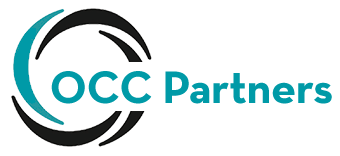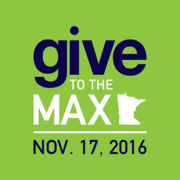Must-Have Interviewing Tips
 There’s a solution to make your interviewing more comfortable and successful. The solution is practice. Interviewing is a skill you can learn. Yes, it’s a skill that’s learned. Very few people do it well without practice, like any skill. So, I’ll provide some simple tips and then it’s up to you to practice. With the right tips and practice, you can become comfortable sharing your background and strengths with potential employers, making a good impression, getting your questions answered and ultimately landing your dream job. And, in the end you might even say you enjoy interviewing.
There’s a solution to make your interviewing more comfortable and successful. The solution is practice. Interviewing is a skill you can learn. Yes, it’s a skill that’s learned. Very few people do it well without practice, like any skill. So, I’ll provide some simple tips and then it’s up to you to practice. With the right tips and practice, you can become comfortable sharing your background and strengths with potential employers, making a good impression, getting your questions answered and ultimately landing your dream job. And, in the end you might even say you enjoy interviewing.
The first step is preparing for the interview
Develop an authentic and motivating story. Everyone thinks their job, hobbies, accomplishments, and education are like everyone else’s. But that’s not true, each of us brings a unique perspective to every moment of our lives, and it’s up to you to pick the most compelling pieces and build a ‘short story’ of you that is authentically you and motivates the interviewer to get to know you, your skills, and your strengths.
Create a ‘short story’ about yourself that explains why you’re looking for a new role and what you’ve accomplished at your current job. This short story should be brief, because you’ll expand later during the interview, but it should compel the interviewer to want to learn more. Therefore, it’s important to frame your story in a positive way.
Prepare for The Interview
Do research about the company, check out recent news and updates, look at the company from sources like Glassdoor to learn more about the role, salaries, benefits, and interviewing there. Do you know anyone at the company or have any connections there? If so, connect with them and let them know you’re interested in learning more about the company and the role.
Once you’ve done research about the company, it’s time to prepare for the questions. Make a list of your strengths and while you’ll likely only ever discuss three strengths in one interview; every interview is different, and if you’re interviewing with more than one person, you won’t want to repeat yourself to each interviewer. Be prepared to provide supporting information to one or more of your strengths.
Practice typical interview questions and then practice strengths-based interview questions, Behavioral based interview questions, using the STAR approach. For more information about behavioral based interviews, check out this blog: Alison Doyle, “Behavioral Interviewing Techniques and Strategies” The Balance@ www.thebalance.com/behavioral-job-interviews-2058575.
Prepare by providing examples of when you demonstrated problem solving, providing solid customer service, or building collaborative relationships within the organization. And now comes the most important part of your preparation, don’t just walk yourself through your story or think through anticipated questions, write it all down. Consider great storytellers you’ve heard…their message is authentic and true, and it’s generally been practiced. Most good speakers start with a written draft, which has been reviewed and edited, and then memorized. Once memorized, the storyteller can relax and authentically and naturally relay their story. The same holds true with interview questions. The more you practice by preparing ahead, and then practicing with a family member or friend, the better you’ll get. And, because you don’t want to do a lot of interviewing to get practice, practicing before your first interview.
Next, put together a couple of interviewing outfits so you’re ready to go when you need them. And dress a little ‘up’ beyond the company’s current employees. It used to be that wearing a suit was a must, but that’s no longer true at many companies, so learn what the company culture is and then dress slightly more formal. Not significantly, just a little. So, don’t wear a suit when everyone at the company wears tee shirts, but business casual would a perfect choice. I once had a seasoned professional come to an interview in a suit that had clearly been kept for only infrequent formal occasions. We were a start-up where business casual was ‘dressed up’. It was a huge red flag to the interviewers. It said, this person isn’t as adaptable as we need for this role. And unfortunately, the candidate’s first interview didn’t turn into a second interview.
At the Interview
 As you respond to questions, remember to provide candid, upbeat answers. And be thorough. Even when asked about weaknesses or failures, these are opportunities to tell the interviewer what you’ve learned and are learning from those experiences. It also establishes that you don’t make a mistake over and over, but are a continuous learner. Everyone makes mistakes, everyone has failures, but successful individuals learn from them. Show how you have.
As you respond to questions, remember to provide candid, upbeat answers. And be thorough. Even when asked about weaknesses or failures, these are opportunities to tell the interviewer what you’ve learned and are learning from those experiences. It also establishes that you don’t make a mistake over and over, but are a continuous learner. Everyone makes mistakes, everyone has failures, but successful individuals learn from them. Show how you have.
Ask insightful questions when the time is right. Ask about what to expect the first 30 days on the job, and what you need to accomplish in your first year to be successful.
The interview is your opportunity to sell yourself and to learn about the company. This isn’t the place for you to make demands or reveal all your secrets or dreams. It’s also not the place to discuss your specific compensation or the perks you want to join the company. That is done after the interview once you get an offer. And, if you get asked what your five year or long term goal is, make sure your answer aligns with the company’s perspective and future opportunities at the company. This is not the time to reveal that you’d like to be an entrepreneur in five years and this role would help you learn what you need to get there.
At the end of the interview ask the interviewer about next steps and tell them you are interested…even if you’re not sure. It’s easy to turn down an offer, but if you never get an offer, you don’t get that choice. And, whether you want the position or not, getting an offer builds your confidence.
After the Interview
Take a deep breath, because you just did it, you interviewed, and got some real practice, even if it didn’t go as well as you’d hoped. Now is the time for reflection. What questions could you have answered better? What conversations were left unsaid? Are there questions that you asked that can be improved? Homework time again, go home and right your improved responses and/or questions down. Don’t expect that you’ll remember everything. You may want to just add what you learned to your arsenal of questions and answers, so you enhance your ability to respond to the unexpected in the future.
 Last, send a thank you. It’s no longer required or even necessary to send a formal written letter. Today’s business is moving too fast and a decision about you will often likely be made in a day or two, so the best ‘thank you’ is often an email, sent within 24 hours of the interview. That means before you leave the interview you should get the interviewer’s business card, or at least their e-mail address. Most interviewers appreciate the ask, especially when you tell them why you’re asking for that information, and if they won’t reveal it, sending a thank you email to HR or the recruiter and asking them to forward the email is a good alternative. Even interviewers who don’t give you their email appreciate a forwarded thank you for HR. I’ve seen it multiple times where a forwarded thank you to the hiring manager helped the manager ultimately decide between two promising candidates. The one that sent a thoughtful, but brief thank-you got the offer.
Last, send a thank you. It’s no longer required or even necessary to send a formal written letter. Today’s business is moving too fast and a decision about you will often likely be made in a day or two, so the best ‘thank you’ is often an email, sent within 24 hours of the interview. That means before you leave the interview you should get the interviewer’s business card, or at least their e-mail address. Most interviewers appreciate the ask, especially when you tell them why you’re asking for that information, and if they won’t reveal it, sending a thank you email to HR or the recruiter and asking them to forward the email is a good alternative. Even interviewers who don’t give you their email appreciate a forwarded thank you for HR. I’ve seen it multiple times where a forwarded thank you to the hiring manager helped the manager ultimately decide between two promising candidates. The one that sent a thoughtful, but brief thank-you got the offer.
The Key to Becoming Good at Interviewing, Practice!




 If you’re a fresh graduate, it’s time to tell people! List the degree in all caps and FIRST, then the college name. With the degree first, the reader sees immediately you have a Bachelor’s degree/Master’s degree. If you took interesting and relevant classes, or classes that show you are a strategic thinker, analytical, or creative, then include those. For two reasons, one is sometimes it can show a more creative personality or more analytical, or even skills in a specific area, like Accounting/Finance, or a Digital Marketing class, which they’d never know, unless you’ve put it on your resume. The second reason is sometimes in an interview, the interviewer sees a class that’s interesting and asks you about it…and this is a good time to ‘break the ice’ and show your interest or knowledge.
If you’re a fresh graduate, it’s time to tell people! List the degree in all caps and FIRST, then the college name. With the degree first, the reader sees immediately you have a Bachelor’s degree/Master’s degree. If you took interesting and relevant classes, or classes that show you are a strategic thinker, analytical, or creative, then include those. For two reasons, one is sometimes it can show a more creative personality or more analytical, or even skills in a specific area, like Accounting/Finance, or a Digital Marketing class, which they’d never know, unless you’ve put it on your resume. The second reason is sometimes in an interview, the interviewer sees a class that’s interesting and asks you about it…and this is a good time to ‘break the ice’ and show your interest or knowledge. Most recent first! Never, ever, start the with your oldest position because the typical reader spends less than 30 seconds reading your resume, and may never spend the time on yours to see you’ve changed the order.
Most recent first! Never, ever, start the with your oldest position because the typical reader spends less than 30 seconds reading your resume, and may never spend the time on yours to see you’ve changed the order. Think it’s unimportant? Well consider this, most people hire people they like, and the quickest way to connect with an interviewer is if there’s a common interest, or an interesting detail to ask you about. Then, if it comes up, and often it will, you’ve created an opportunity to kick-off your first meeting on a great start. Note, political and religious affiliations are highly discouraged because they could be misinterpreted.
Think it’s unimportant? Well consider this, most people hire people they like, and the quickest way to connect with an interviewer is if there’s a common interest, or an interesting detail to ask you about. Then, if it comes up, and often it will, you’ve created an opportunity to kick-off your first meeting on a great start. Note, political and religious affiliations are highly discouraged because they could be misinterpreted.


 We often read about the following issues occurring in senior care communities. Sound familiar?
We often read about the following issues occurring in senior care communities. Sound familiar? Some managers tell us that they feel held hostage to staff that have performed poorly, but they have no one to replace them. Or they are concerned that by letting them go, there will be another reason for legal issues. Sometimes, managers are counseled to keep the staff member on payroll by legal representation or corporate advisers. An important first step is to have a disciplinary review process in place, and use it. At the review always have two people present that represent the company. Set goals, expectations and a timeline for the improvement plan. Follow up as scheduled to review progress. There are many more details to handle these functions well. In a busy day, it is difficult to find time to supervise issues, but accountability is the key. It protects you and your organization from future problems.
Some managers tell us that they feel held hostage to staff that have performed poorly, but they have no one to replace them. Or they are concerned that by letting them go, there will be another reason for legal issues. Sometimes, managers are counseled to keep the staff member on payroll by legal representation or corporate advisers. An important first step is to have a disciplinary review process in place, and use it. At the review always have two people present that represent the company. Set goals, expectations and a timeline for the improvement plan. Follow up as scheduled to review progress. There are many more details to handle these functions well. In a busy day, it is difficult to find time to supervise issues, but accountability is the key. It protects you and your organization from future problems. Do you provide on-boarding training, employee reviews, exit interviews? How do you handle disciplinary issues? When is it legal to drug screen after hire? What do you do if an employee accuses your organization or another employee of an issue? How do you manage your ongoing employee file needs? Your human resources are your largest expense! Manage well and you will save legal expenses, have better retention, and improve occupancy. Training and management are both available — Let On Call manage it all for you!
Do you provide on-boarding training, employee reviews, exit interviews? How do you handle disciplinary issues? When is it legal to drug screen after hire? What do you do if an employee accuses your organization or another employee of an issue? How do you manage your ongoing employee file needs? Your human resources are your largest expense! Manage well and you will save legal expenses, have better retention, and improve occupancy. Training and management are both available — Let On Call manage it all for you!

 “We love our Rounding Doctor. Any staff we have encountered have been nothing but accommodating and helpful.”
“We love our Rounding Doctor. Any staff we have encountered have been nothing but accommodating and helpful.”